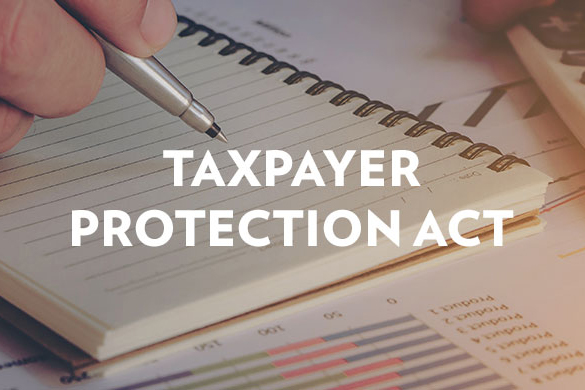Media

Why the Taxpayer Protection Act Matters to You
Pennsylvania could end the fiscal year with a budget deficit…again. If the latest Independent Fiscal Office (IFO) projections prove accurate, the commonwealth would need to fill a $195 million budget hole. The gap is primarily due to litigation holding up a fund transfer from the Joint Underwriting Association.
While the projected deficit is smaller than the $1.5 billion deficit in the prior fiscal year, taxpayers should still be concerned. The legislature reduced last year’s deficit with more borrowing, which just pushes off the due date for the state’s bills. Additionally, there are virtually no protections in place to limit state spending growth in subsequent budgets.
This makes passage of the Taxpayer Protection Act (TPA) critical. The TPA caps spending increases based on a formula determined by inflation + population growth. If spending limits had been enacted in 2003, the state would currently be spending $2 billion less. And rather than talking about a deficit, lawmakers could be debating how to use the state’s budget surplus. A version of the TPA, House Bill 110, has already passed the House and currently sits in the Senate, where it enjoys majority support.
Simple spending restraint would improve the state’s balance sheet and the finances of working Pennsylvanians. A cumulative $32.4 billion, or more than $10,000 per family of four, would have stayed with taxpayers if the TPA became law in 2003. The extra cash could have helped families pay for groceries, school tuition, medical bills, or other important needs.
Instead, it went to Harrisburg to finance the political wants of lawmakers who refuse to address overspending. Fiscal irresponsibility has clear consequences. Budgets are unbalanced. Pennsylvanians shoulder an onerous tax burden. And economic growth is woefully inadequate, which drives tens of thousands of people out of the commonwealth every year.
Pennsylvanians don’t have to accept financial uncertainty and economic mediocrity. Transforming Pa. into a state of opportunity is possible. But it begins with something seemingly ordinary: spending restraint. If lawmakers tighten the state’s belt through the TPA and other long-term reforms, they can help write the next chapter in the state’s history—one with a theme of prosperity for all.